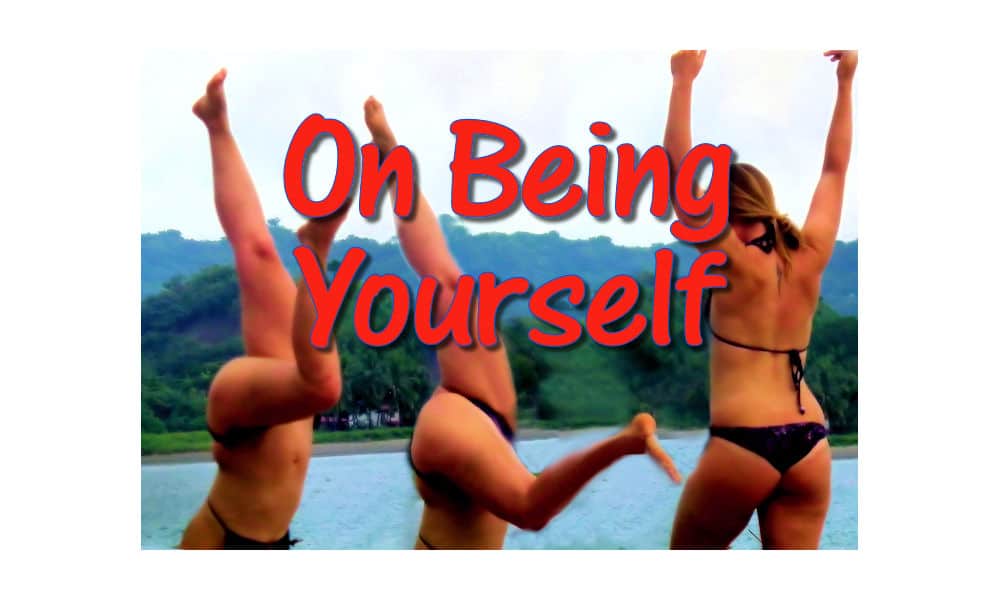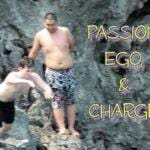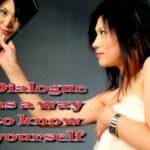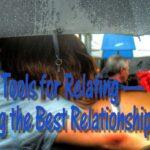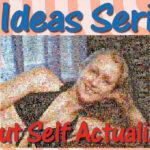On Being Yourself–you are exactly and only who you are–including what you discover about yourself–the parts tucked away
Of Wayne’s many books, the one closest to today’s topic is: This Endless Moment
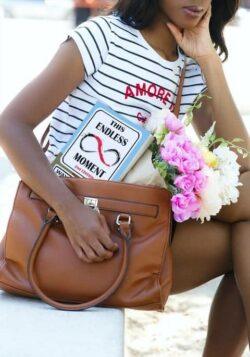
This Endless Moment
An excellent guide to life and living.
Learn to focus your attention of who you really are.
Purchase all formats from Amazon
Purchase digital versions
(Apple, Nook, Kobo, etc.) from this page
Here’s a question I received from a reader:
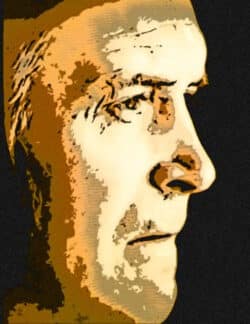
… I’d be interested in what you might have to say about personal limitations and failure. How do we acknowledge and accept them in a positive way? How do we act within our limits, yet reach beyond our grasp? There seems an inherent contradiction between “setting your mind on anything” and the real, universe-given limitations that we are born with. What does failure mean with respect to all of that?
First of all, people who think you can “set your mind on anything,” assume that there is equality between persons. In other words, that all persons are capable of anything. That we’re all, at some cellular level, the same.
I’ll say more about this in a minute.
Ben Wong and Jock McKeen, in their excellent book, The NEW Manual for Life, expand on Karen Horney’s observations, and suggest that the process of socialization causes us to repress that which is not acceptable to those in authority over us (originally, our parents.)
We create a “politically correct” persona, capable of fitting in.
We also create (using Freud’s term) a superego, which Ben and Jock call the Ideal Self.
This part of us is never satisfied with who we are, and is like a relentless “good cop/bad cop” drill sergeant. Our Ideal Self urges us ever onward and upward, telling us that we can do anything, be anything; indeed, if we were a decent person, we would already be doing and being more.
The set-up is that we can never do and be everything our Ideal Self wants us to be and do (it’s an ideal, not a possibility).
When we fail, we fall into self-hatred. The voice of this self-hatred is also provided by the superego, which now shifts to the “bad cop” side of the drill sergeant. “You always screw up. You’ll never amount to anything.”
And then, with a sly wink, the “good cop” appears. “Unless, you try harder. You can do anything, you know, if only you’d put your mind to it.”
Missing in this dialogue with our Ideal Self are 2 things:
- any sense of the here and now satisfaction of simply being alive, and
- any chance at having an authentic life.
Authenticity is a rare commodity these days. Authenticity comes from an acknowledgement and sharing of the totality of our being, not just the parts we were taught to favour.
And part of that acknowledgement is that we are, to drag back in my first point–emphatically–not equal.
The harpies of political correctness will at this point either excoriate me or unsubscribe.
For the rest of you still reading, let’s do some thinking. Right away, some of you are going to get what I’m saying, some are going to struggle, and some are not going to get it. That’s not about the point I’m making–that’s about how our brains work.
My point is not right, nor is it wrong. It is simply my opinion.
That you agree or disagree is about how you process the concept I’m presenting. Some people will use logic to check it, others will apply morals (rights and wrongs) to their process of analysis, some will decide that my point is not even worth considering… and others will do… whatever.
A simple demonstration, I contend, of the fact that our minds function differently, and therefore, are not equal.
It’s the same with physical attributes. I am my body, just as I am my mind, and all I have to work with is the body I have.
There are things about my body that I can do something about–my weight or strength, for example–and there are things I can’t do anything about–my height, for example.
As an illustration, Darbella and I are well matched in terms of endurance. We have paddled kayaks down treacherous rivers and across lakes for 12 hours, then picked up our kayaks and packs and portaged them 5 km to get to home base. Yes, we were whacked, but there was no sense that we couldn’t do it, no fear of dying in the process. Full story here!
We’re more like plow horses than racehorses.
This is a characteristic of our physical selves. Some people have more endurance, some less. Not equal.
Same thing emotionally. Some people are gifted with a range of emotions, and the ability to express them without blaming. Others are gifted with their entitlements and a list of whom to blame. Both are approaches to the emotional life.
Both, at some level, “work.” They, however, are not equal.
Political correctness has caused these differences to be hotly denied: we give everyone “participation awards” that declare the showing up is the same as excelling. We are cautioned not to offer criticism of someone’s crappy work, lest fragile egos be damaged.
This is silliness in the extreme. We forget that there is only one equality: each of us has the ability to know ourselves and fulfill our destinies (dharma) within the bounds of who we actually are (karma.)
Life is not about comparisons to others.
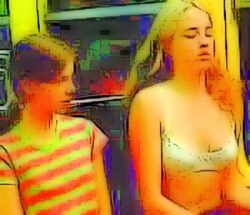
I am in deep trouble if I compare myself to others.
If my baseline is to be as good as or better than Joe Blow, I will be caught in comparisons that are impossible. I can’t be like Joe, as we are not equal in intelligence, wisdom, or life-experience.
To compare myself (or worse, to want or demand what Joe has) is the height of arrogance and silliness and will lead nowhere I want to go.
This also means that I must (horrors!) take full responsibility for my choices, decisions and directions.
Just as there is no one to compare myself to, there is no one other than me to blame for any choice I have ever made. I am where I am and I know what I know based solely upon what I have chosen to learn, to absorb, to assimilate and to find within myself.
So, to answer the question I was asked,
I am here to explore myself and to unearth the totality of who I am.
My goal is to come into a place of acceptance — acceptance of my skill set (as it is, not as I wish it was) my abilities (as they are, not as I wish them to be) and my self (all of me, warts and all.)
From this place of acceptance, I will, as I choose to, push the boundaries of what I know and who I am, learning to include more and more of myself–more and more of the material I blocked.
I do this through dialogue with people I respect, through study, through reflection, through writing, practice and integration.
I will, above all, keep my nose firmly planted on my face and on my side of the fence, judging my successes and failures (of which there will be an abundance — of both) on the only basis that has significance — by comparison to me. I do not succeed when another fails, nor vice versa.
I choose to be in dialogue with a short list of other explorers, and continue to open myself to their stories, their insights and their views, both of their lives and of their sense of me.
In that process of openhearted revelation, I continue to allow myself to explore the depths of the only person I can ever know. Me.
I know that my self-knowledge and contentment is in direct proportion to my honest self-exploration and self-acceptance. No one, no thing, including life, owes me anything.
As in the Zen tale, tiger above me, tiger below me, I am clinging to a breaking branch on the side of a mountain. In front of me, a strawberry. I take it, and I eat. Delicious!

